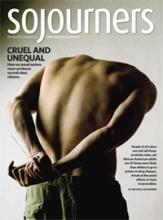Time and again, we heard from President Obama on the campaign trail that Washington was broken and he was running for president to fix it. This was true then, and his presidency has confirmed it -- Washington, D.C., is a broken system that needs to be changed. But early in the Obama presidency, his administration decided that the system was more broken than they had imagined, special interests were more powerful, and the influence of money over everything was almost complete. So they decided to work within that broken system, work inside the way it had always been done, and try to get some things done for people. That was a mistake.
"Change is easy if you're just talking about tinkering around the edges," Obama said in February 2010. "Change is harder when you actually dig in and try to deal with the structural problems that have impeded our progress for too long." What he has found is that change is hard, even when you tinker around the edges, as long as the system is broken. We've seen tinkering around the edges when it comes to the poor, our economic system, the war in Afghanistan, and immigration reform. But these systems don't need just tinkering, they need deep change.
In agreeing in December to extend tax cuts for the wealthiest Americans, President Obama got some good things for working families: the payroll and middle-class tax cuts, the extension of unemployment benefits, and various refundable tax credits. But the president is presiding over a massive redistribution of wealth that has been going on for a very long time -- the redistribution of wealth from the middle and the bottom to the top of American society -- leaving us with the greatest economic inequality in American history. This will only grow larger with the Obama "compromise."
Read the Full Article
